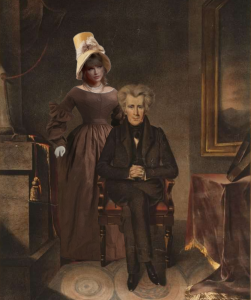When YouTube first gained momentum, no one imagined the impact it would have on the aspiring actors, singers and “15 minutes of famers” out there. Then Vine released its app, and an even more obscure culture was born. Ordinary people who could produce a laugh, and subsequently a follower, subscriber or re-vine, were now capable of achieving some real recognition.
Some of the participants of these videos are desperately trying to climb the ranks of Hollywood, while others are just having fun in their free time. Both instances warrant the possibility of money and admiration, so many do not look to upgrade from their current engagement. Some stories would show that there is much more to gain from these gigs, while others would prove the contrary.
Gone are the days where you have to wait to be discovered, and you hit wall after wall, and you go on audition on top of audition. Now, it’s very possible to be a notable figure in the world of music, television and comedy while literally sitting in your mom’s basement.
One success story in the world of comedy is the “Workaholics” crew. The improv group, previously known as Mail Order Comedy, was struggling to break onto the scene when they decided to upload their videos to YouTube. A Comedy Central executive came across the videos, and just like that, the boys were on the fast lane to success.
However, some people are merely content with maintaining their own digital mishmash of a career, and do quite well for themselves. Jenna Marbles, 29-year-old YouTube sensation, has an estimated $2.5 million net worth from merely crafting videos with elements of seduction, puppies, dirty humor, social commentary and totally relatable scenarios.
An entire career as emerged from this new medium of expressing talent, charisma and to be completely honest, gorgeous individuals. There are agents whose sole job is to peruse the World Wide Web in hopes of finding the next Justin Bieber.
Yes, the most well-known YouTube success story is the JBiebs. YouTube was not only a platform for his talent. When his first single was released, everyone (including myself) felt like a contributing component to his success, and that skyrocketed sales.
However, for every success story, there is also a failure. The Fine Brothers, who make “React Videos,” sold a series based on the concept to Nickelodeon. Bo Burnham’s success on YouTube led to a comedy career, but his luck ran out when he failed with his own show on MTV, which was cancelled after one season.
Rachel Bloom relayed the impact of her origins on YouTube in her acceptance speech at the Golden Globes, where she won for her role in “Crazy Ex-Girlfriend.” On the other hand, Grace Helbig, deemed the Queen Bee of YouTube, was given her own show to host on E! in 2015, but after poor ratings her first season, the future of the show is as good as over.
Naturally, there have also been questionable victories. YouTube persona Fred Figglehorn (Lucas Cruikshank) landed three films on Nickelodeon after his horribly obnoxious videos went viral, and Vine/YouTube’s oddball character Miranda Sings (Colleen Evans) landed a scripted series at Netflix. The most confusing, as well as the most recognized YouTuber since 2013, PewDiePie, has an entire fan base of “Bro Army” gamers.
I’m concerned for the future of Hollywood if “newfound talent” includes the likes of people who play a video game and have a running commentary while doing so. And then we have the millions of children’s “productions” to sift through, who grew up with this technology and know just how to manipulate their videos into getting more views than already established A-listers. That’s not talent; it’s pathetic and deteriorating.
Viners and YouTubers alike are promoting an elitist mindset, as the creators are often fostering stereotypical and racist attitudes and then “collab” with each other in hopes of tripling their fan base. They aren’t doing anything unique; they just have the resources, power and the pretty faces, which seem to bring major advertisers to their knees.
Personally, I find that the “Vine stars” produce the worst videos, whereas the random viral videos are fresh, authentic and positive. Although those are few and far between, they are the ones that deserve our attention. Genuine, spontaneous, viral videos are the ones that are a more accurate representation of the Millennial generation. We have the capability to capture the little pleasures in life and then share them with the world, with hopes of brightening someone else’s day and making them smile.




